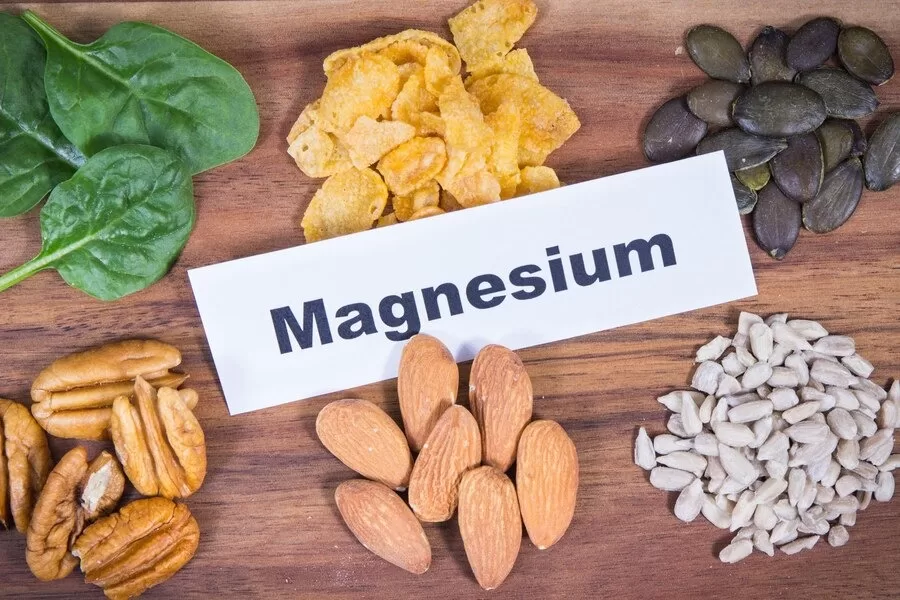Table of Contents
Magnesium Matters: How This Essential Mineral Can Transform Your Health
Are you ready to revolutionize your health with a simple yet powerful mineral? Magnesium, the unsung hero of nutrition, plays a vital role in over 300 enzymatic reactions in the body, impacting everything from energy production to muscle function and bone health. In this article, we’ll delve into the myriad ways magnesium can transform your well-being and why it’s a game-changer in the world of nutrition.
From combating fatigue and promoting relaxation to supporting heart health and glucose regulation, the benefits of magnesium are truly astounding. Whether you’re an athlete looking to boost performance, or someone seeking natural remedies for migraines or anxiety, this essential mineral holds the key to unlocking your full potential.
Join us as we explore the fascinating world of magnesium and uncover how integrating this powerhouse mineral into your routine can propel you towards a healthier, more vibrant life.
The importance of magnesium for overall health
Magnesium is an essential mineral that plays a crucial role in maintaining overall health and well-being. It is involved in numerous biochemical reactions in the body, including protein synthesis, muscle and nerve function, blood glucose control, and blood pressure regulation. In fact, magnesium is required for the proper functioning of over 300 enzymes in the human body.
Without sufficient magnesium, many bodily functions would be compromised, leading to a range of health issues. Unfortunately, studies have shown that a significant portion of the population may not be meeting their daily magnesium needs, making it essential to understand the importance of this vital mineral.
One of the key roles of magnesium is its involvement in energy production. It plays a crucial part in converting food into energy, making it essential for overall vitality and stamina. Furthermore, magnesium is also crucial for muscle function, as it helps to regulate muscle contractions and is necessary for the synthesis of adenosine triphosphate (ATP), the primary energy currency of the cell.
In addition to its role in energy production and muscle function, magnesium also contributes to bone health. It is an essential component of bone tissue and is involved in the regulation of calcium and potassium levels, which are vital for maintaining strong and healthy bones. Therefore, ensuring an adequate intake of magnesium is crucial for overall bone density and strength.
Signs of magnesium deficiency
Despite its importance, magnesium deficiency is a common issue that can have significant impacts on health. Some of the common signs of magnesium deficiency include muscle cramps, tremors, fatigue, and weakness. Additionally, individuals with low magnesium levels may experience a range of symptoms such as loss of appetite, nausea, vomiting, and abnormal heart rhythms.
Furthermore, magnesium deficiency has been linked to conditions such as osteoporosis, high blood pressure, diabetes, and migraines. It’s important to recognize the signs of magnesium deficiency and take steps to address any potential inadequacies in magnesium intake.
In some cases, magnesium deficiency may go unnoticed as the symptoms can be subtle and easily attributed to other factors. However, being aware of the signs of magnesium deficiency is crucial for maintaining optimal health and well-being.

Health benefits of magnesium
The health benefits of magnesium are wide-ranging and encompass various aspects of well-being. From promoting relaxation and sleep to supporting cardiovascular health and aiding in the regulation of blood sugar levels, magnesium is a versatile and essential mineral for overall health.
One of the primary benefits of magnesium is its ability to promote relaxation and alleviate stress. Magnesium plays a crucial role in the regulation of neurotransmitters, which are responsible for transmitting signals throughout the nervous system. As a result, adequate magnesium levels can help to reduce anxiety, improve mood, and promote a sense of calm and relaxation.
Furthermore, magnesium plays a critical role in the regulation of blood sugar levels. It enhances insulin sensitivity, which is essential for maintaining healthy blood glucose levels. As a result, adequate magnesium intake may help to reduce the risk of type 2 diabetes and support overall metabolic health.
Types of magnesium supplements
When it comes to addressing magnesium deficiency or simply optimizing overall health, various types of magnesium supplements are available. Each type of magnesium supplement has its own unique properties and benefits, making it essential to understand the differences between them to make an informed choice.
One of the most common forms of magnesium supplements is magnesium citrate, which is known for its high bioavailability and gentle laxative effect. This form of magnesium is often used to support digestive health and promote regular bowel movements. Additionally, magnesium citrate is well-absorbed by the body, making it an effective option for addressing magnesium deficiencies.
Another popular form of magnesium supplement is magnesium glycinate, which is highly absorbable and well-tolerated. Magnesium glycinate is known for its calming effects and is often used to promote relaxation and alleviate symptoms of anxiety and stress. It is an excellent choice for individuals looking to support mental and emotional well-being.
Best sources of dietary magnesium
In addition to supplementation, obtaining magnesium from dietary sources is essential for maintaining optimal levels of this vital mineral. Fortunately, magnesium is found in a wide variety of foods, making it relatively easy to incorporate into a balanced and nutritious diet.
Some of the best food sources of magnesium include leafy green vegetables such as spinach and kale, nuts and seeds like almonds and pumpkin seeds, and whole grains such as brown rice and quinoa. Additionally, legumes, tofu, and certain types of fish, such as salmon and mackerel, are also rich sources of magnesium.

Conclusion
In conclusion, magnesium is a powerhouse mineral with far-reaching implications for overall health and well-being. From its role in energy production and muscle function to its impact on relaxation, heart health, and glucose regulation, magnesium is an essential nutrient that should not be overlooked.
By recognizing the signs of magnesium deficiency, incorporating magnesium-rich foods into your diet, and considering supplementation when necessary, you can harness the transformative potential of magnesium to optimize your health and vitality. Whether you’re seeking to enhance athletic performance, alleviate symptoms of specific health conditions, or simply support your overall well-being, magnesium holds the key to unlocking your full potential.
Incorporating magnesium into your daily routine through mindful dietary choices, high-quality supplementation, and relaxation practices can pave the way for a healthier, more vibrant life. With its myriad health benefits and versatile applications, magnesium truly matters and has the potential to revolutionize your health in profound ways.

